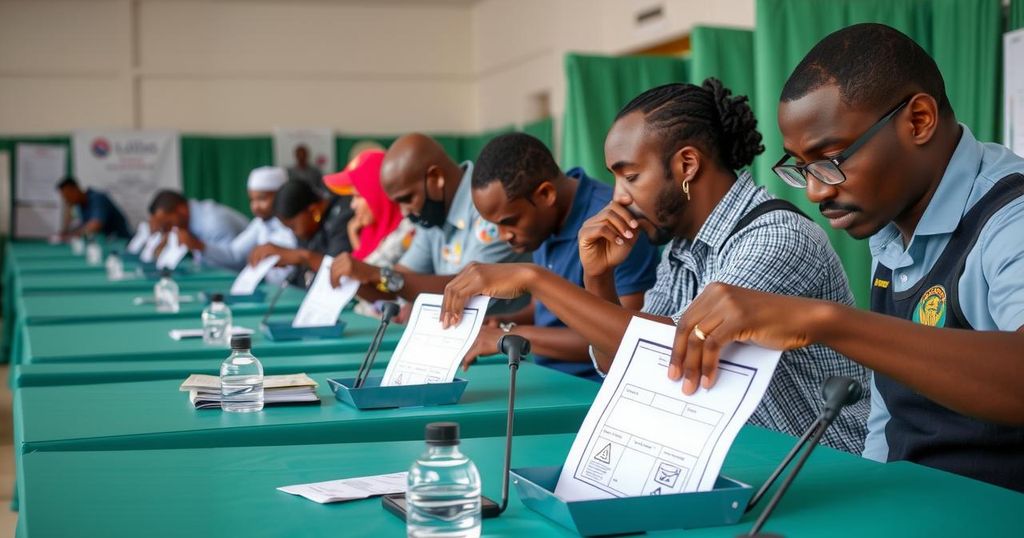Voters in Comoros are heading to the polls to elect members of the 33-seat parliament amid allegations of electoral irregularities against President Azali Assoumani. Approximately 338,000 registered voters will participate in the elections, which feature nearly 100 candidates. The atmosphere is marked by divided opposition sentiments regarding election participation, as concerns about Assoumani’s potential succession plan for his son arise.
Voters in Comoros are participating in a crucial election for the 33-seat parliament of the Indian Ocean archipelago, a year after President Azali Assoumani was re-elected amidst allegations of electoral irregularities by the opposition. Polling stations were opened early Sunday, with approximately 338,000 registered voters. This election follows the last parliamentary vote in January 2020, and nearly 100 candidates have been selected by the Supreme Court to run for office.
President Assoumani, who has been in power since a coup in 1999 and has won three subsequent elections, faces accusations from his opponents regarding authoritarian practices. There are concerns he may be positioning his eldest son, Nour El-Fath, for succession, having granted him considerable authority in 2024. Opposition parties are divided, with some, including Juwa, led by former President Ahmed Abdallah Sambi, advocating for a boycott, while others believe participation may expose flaws in the governing system.
Hamidou Karihila, a candidate from the opposition Hope of the Comoros party, stated, “The Azali regime is weakened … by participating in these elections we are contributing to further exposing the flaws in its system and accelerating its inevitable fall.” The results of this pivotal election are anticipated to be announced by Friday.
The Comorian political landscape has been marked by instability and allegations of electoral misconduct. President Azali Assoumani, who has governed since seizing power in a military coup in 1999, has faced consistent criticism regarding his administration’s authoritarian tendencies. Despite successfully navigating elections, significant opposition persists, particularly in light of his consolidation of power and speculation regarding a dynastic succession. The current electoral process is critical as it may influence the country’s future governance and political atmosphere.
In summary, the parliamentary elections in Comoros represent a significant event amid a climate of political tension and allegations of authoritarianism. With the ruling party facing opposition calls for a boycott and competing narratives about the legitimacy of the electoral process, the outcome will be pivotal in shaping the archipelago’s governance. Observers will be watching closely for the results, expected by Friday, as they could signal either a continuation of Assoumani’s grip on power or an opening for the opposition to challenge it.
Original Source: www.moreechampion.com.au






